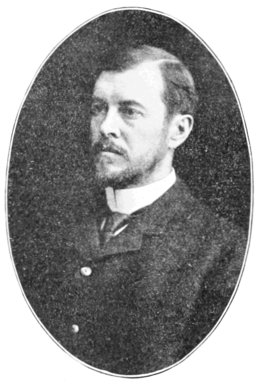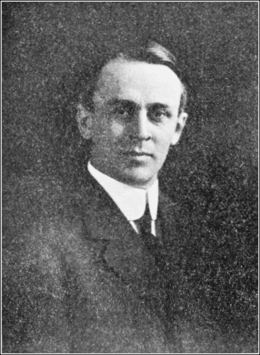Popular Science Monthly/Volume 80/February 1912/The Progress of Science

Director of the Harvard College Observatory, President-elect of the American Association for the Advancement of Science.
THE WASHINGTON MEETING OF THE AMERICAN ASSOCIATION FOR THE ADVANCEMENT OF SCIENCE
The American Association for the Advancement of Science and the societies affiliated with it held an unusually successful meeting in Washington during Christmas week. This, the sixty-third meeting of the association, was the largest in its history, the registration of its members being 1,306. There is no practical advantage in registering and at Washington the places of meeting were so widely scattered that many members failed to register. The secretary of the council estimates the total attendance of members of the association and of affiliated societies at 2,800. The association had the privilege of being welcomed to the capital of the nation by its president, who in his address exhibited an appreciative interest in the scientific work done under the government and in the investigations of scientific men. He said that if he had the power he would place an astronomer at the head of the U. S. Naval Observatory. President Taft must have paid what he regarded as a high compliment to the work of a scientific man when he compared it with that of a judge. Indeed he placed the work of the bench even higher than might have been expected, for he said that it is the duty of a judge to find a final solution in accordance with "eternal justice," whereas it is commonly supposed that a judge must interpret temporary laws. Dr. Charles E. Bessey, head of the department of botany at the University of Nebraska, president of the association, in reply to the address of welcome, called attention to the fact that scientific men are like those who occupy legislative, judicial and executive positions, in that they work for the good of the community rather than for their own advancement; but whereas the politician works only in the present and for the present, the scientific man, like the statesman, must look before and after. Dr. Bessey also called attention to the need of giving scientific men in the Washington bureaus the opportunities most favorable to scientific research. The annual address was then delivered by President A. A. Michelson, head of the department of physics in the University of Chicago, whose subject was "Recent Progress in Spectroscopic Methods." Dr. Michelson traced with such clearness as to hold the complete attention of the audience the important researches in which he himself has taken such a leading part.
It is quite out of the question to describe the work of the eleven sections of the association and of the thirty special societies which met at Washington. The titles of the papers presented would fill a considerable part of an issue of the Monthly, and the papers themselves would fill its volumes for years to come. The addresses of the president and of the vice-presidents have been printed in Science, where also will be found accounts of the proceedings of the association and of the various societies and some of the addresses and discussions presented before them. Here we can only call attention to the wide scope and great quantity of research work being carried forward in this country and adequately represented at the Washington meeting. The only drawback to our satisfaction is that there appear to be no advances or discoveries of such outstanding importance as to deserve special recognition.  Dr. Edwin B. Frost,
Dr. Edwin B. Frost,
Director of the Yerkes Observatory, Vice-president for Mathematics and Astronomy.
NEW UNIVERSITY PRESIDENTS
There is no decline in the birth rate of university presidents. Within a few months President Vincent has been installed at the University of Minnesota, President Brown at New York University, President Murlin at Boston University, President Hodges at the University of West Virginia, President Benton at the University of Vermont and President Bowman at  Dr. Chas. S. Howe,
Dr. Chas. S. Howe,
President of the Case School of Applied Science, Vice-president for Mechanical Science and Engineering. the State University of Iowa. The deadlock at Princeton University has been broken by the election of Dr. John Grier Hibben, Stuart professor of logic, after the offer of the position had been declined by Dr. J. M. T. Finney, the Baltimore surgeon.  Dr. Robert A. Millikan,
Dr. Robert A. Millikan,
Associate Professor of Physics at the University of Chicago, Vice-president for Physics. It seems that any one who has attended one of these functions of installation, where many presidents gather on the stage, must have noticed the diversity of type, the scholar and the politician, the man of science and the promoter, the hereditary gentleman and the climber, all being in evidence. A gift for oratory seems to be almost the only common trait and even here the variety is more noticeable than the similarity.
One may wonder what trait or accident  Dr. George T. Ladd.
Dr. George T. Ladd.
Emeritus Professor of Philosophy at Yale University, Vice-president for Anthropology and Psychology. has given these gentlemen the extraordinary position they hold in higher education and in the community. In The Educational Review, for November, President Eliot, whose ability, persistence, personality and long tenure of office have been important factors in developing the autocracy of the presidential office in the university and its function as general adviser on all subjects in the community, writes pleasantly about  Dr. Edward L. Thorndike,
Dr. Edward L. Thorndike,
Professor of Genetic Psychology at Teachers College, Columbia University. Vice-president for Education. "The University President in the American Commonwealth." He says:  Dr. J. Pease Norton,
Dr. J. Pease Norton,
Yale University, Vice-president for Social and Economic Science. "Most American professors of good quality would regard the imposition of duties concerning the selection of professors and other teachers, the election of the president, and the annual arrangement of the budget of the institution as a serious reduction in the attractiveness of the scholar's life and the professorial career." The question arises how one who knows so little about the thoughts of professors can adequately fulfill the paternal function, and whether the kind of persons the president thinks the professors ought to be will provide presidents for the future. And if there were no university presidents, what would become of the nation?
SCIENTIFIC ITEMS
We record with regret the deaths of Major Clarence Edward Button, U.S.A., retired, eminent for his contributions on volcanoes and earthquakes; of Miss Susan Maria Hallowell, professor emeritus of botany in Wellesley College; of Mr. George E. M. Murray, F.R.S., for many years on the staff of the department of botany of the British Museum, and of M. Paul Topinard, the distinguished French anthropologist.
President Taft has nominated Dr. Eu pert Blue, of South Carolina, as surgeon general of the public health and marine hospital service.—M. Henri Bergson, professor of philosophy at the Collège de France, has been appointed visiting French professor of Columbia University for the year 1913. M. Bergson has also been appointed Gifford lecturer at Edinburgh.—The Academy of Natural Sciences of Philadelphia has awarded the Hayden Medal in gold for distinguished work in geology to Professor John C. Branner, of Leland Stanford Jr. University.
The organ of the Japan Peace Society gives an account of the visit of Dr. David Starr Jordan, president of Stanford University, in August, September and October, undertaken under the auspices of the Japan and American Peace Societies. Dr. Jordan gave a large number of addresses, mainly on peace and arbitration, at Tokyo, Yokohama, Sendai, Nagoya, Okayama and Osaka. At Tokyo between September 13 and 18 he gave as many as ten formal addresses.